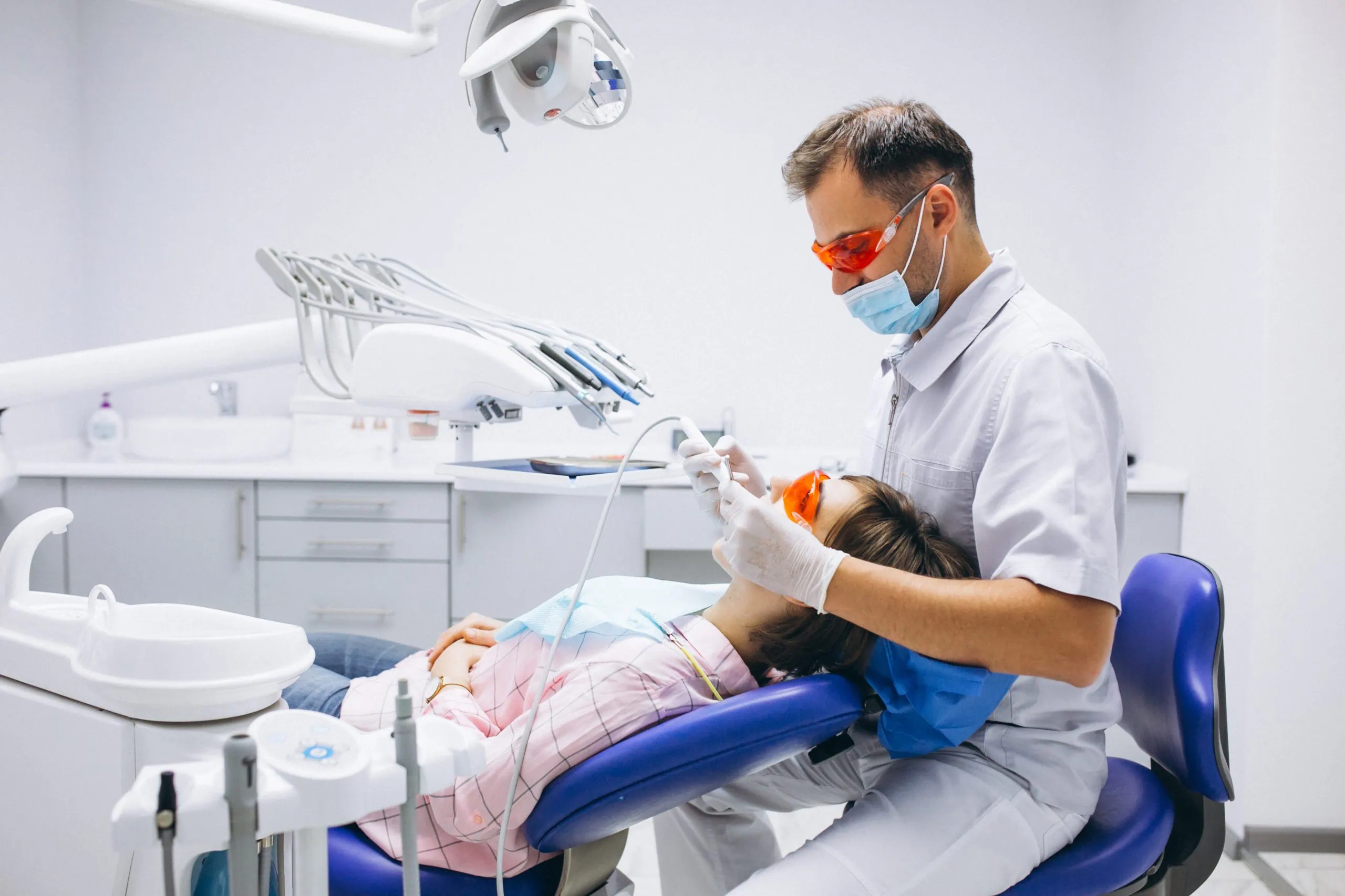When you walk into a dental office, you might wonder: are dentists doctors? After all, they wear white coats, use medical instruments, prescribe medications, and sometimes even detect serious health conditions. Yet many people hesitate to call their dentist a “doctor.” The confusion is understandable, because dentistry and medicine overlap but aren’t identical.
This article breaks down the debate, exploring the training, qualifications, roles, and recognition of dentists across the globe. By the end, you’ll clearly understand why dentists are indeed doctors just in a specialized field.
What Does “Doctor” Actually Mean?
The title “doctor” comes from the Latin word docere, which means “to teach.” In the academic and medical world, it applies to professionals who have earned doctoral-level degrees.
- Medical Doctors (MDs or DOs): These are physicians who diagnose and treat illnesses throughout the human body.
- Dentists (DDS or DMD): These professionals diagnose and treat conditions of the mouth, teeth, gums, and jaw.
Both paths require doctoral degrees. A dentist doesn’t hold the same degree as a physician, but the level of education and training is comparable.
Quick fact: In the United States, dental schools award either a Doctor of Dental Surgery (DDS) or Doctor of Dental Medicine (DMD). They are academically equal; the title just depends on the school.
The Educational Journey: Dentist vs. Physician
One of the strongest arguments in answering “are dentists doctors” lies in education. Let’s break it down.
| Aspect | Dentist (DDS/DMD) | Physician (MD/DO) |
| Undergraduate | 4 years (biology, chemistry, physics, anatomy) | 4 years (biology, chemistry, physics, anatomy) |
| Doctoral Program | 4 years dental school | 4 years medical school |
| Residency | Optional (2–6 years for specializations like orthodontics, oral surgery, endodontics) | Required (3–7 years depending on specialty) |
| Licensing Exams | National Board Dental Examinations + clinical exams | USMLE or COMLEX exams |
| Total Years | 8–10+ years | 11–15+ years |
Although physicians often train longer due to residencies, dentists undergo rigorous coursework that focuses deeply on oral and craniofacial health.
Examples of dental school subjects include:
- Oral pathology
- Periodontology (gum diseases)
- Prosthodontics (crowns, dentures, implants)
- Radiology (interpreting dental X-rays)
- Pharmacology (medications for oral conditions)
Dentists as Doctors: Scope of Practice
Dentists aren’t just “tooth fixers.” Their expertise covers a wide medical range:
- Diagnosis and treatment: From cavities and gum disease to oral cancers.
- Preventive care: Fluoride treatments, sealants, and education on oral hygiene.
- Surgical procedures: Tooth extractions, implants, corrective jaw surgery.
- Systemic health link: Dentists often identify diseases like diabetes, heart disease, or osteoporosis through oral symptoms.
Case Study: A patient with frequent gum infections visited a dentist. The dentist noticed abnormal gum bleeding and referred the patient for medical tests. The result? Early-stage leukemia was diagnosed. This shows how dentists act as frontline medical professionals.
Why People Doubt Dentists Are Doctors
Despite their doctoral degrees, dentists face public confusion. Here’s why:
- Different terminology – People hear “medical doctor” and assume only MDs are doctors.
- Separate schools – Dentistry and medicine evolved as independent educational paths.
- Insurance systems – Medical insurance and dental insurance are usually separate, reinforcing the divide.
- Pop culture portrayals – Movies and TV shows often reduce dentists to “tooth pullers.”
However, dentistry is officially recognized as a specialized branch of medicine focusing on oral health.
Global Perspective: Are Dentists Doctors Everywhere?
The perception of dentists varies across countries:
- United States & Canada: Dentists are considered doctors (DDS/DMD), though distinct from physicians.
- United Kingdom: Dentists are regulated by the General Dental Council and hold the title “Doctor,” though some use “Mr./Ms.” in tradition.
- Germany & Austria: Dentists earn the title “Zahnarzt,” which literally means “tooth doctor.”
- India & Pakistan: Dentists graduate with a Bachelor of Dental Surgery (BDS) degree, which is equivalent to a professional doctorate.
- Japan: Dentists are formally classified as doctors and hold the same social recognition as physicians.
This global overview makes it clear that the professional respect for dentists as doctors is widespread, even if cultural traditions sometimes create differences.
Dentists vs. Physicians: What’s the Difference?
While both are doctors, their primary roles differ.
| Dentist | Physician |
| Focus on oral, dental, and jaw health | Focus on systemic, overall body health |
| Prevents and treats cavities, gum disease, oral cancer | Diagnoses and treats internal diseases, infections, organ dysfunction |
| Performs oral surgeries and implants | Performs surgeries depending on specialty (cardiac, neurology, orthopedics) |
| Prescribes medications for oral conditions | Prescribes medications for a wide variety of illnesses |
Think of it this way: a dentist is like a specialist doctor focusing on one crucial system the mouth which often acts as a window into the body’s overall health.
Do Dentists Deserve the Title “Doctor”?
Yes — and here’s why:
- They complete doctoral-level training.
- Their education involves advanced science and medicine.
- They perform surgical procedures.
- They prescribe medications.
- They diagnose serious health conditions.
In other words, dentists fulfill the same core responsibilities as physicians, just within their specialized domain.
Statistics About Dentists as Doctors
- Over 200,000 practicing dentists exist in the U.S. (American Dental Association).
- Dentists diagnose over 120 different oral diseases.
- Oral cancers diagnosed by dentists account for 54,000 new cases annually in the U.S. (NIH).
- More than 90% of systemic diseases show oral symptoms, making dentists critical in early detection.
FAQs About Dentists Being Doctors
1. Are dentists medical doctors?
Not exactly. Dentists are doctors of dental medicine or surgery, not physicians.
2. Can dentists prescribe medication?
Yes, dentists can prescribe antibiotics, painkillers, and other medications relevant to oral conditions.
3. Do dentists go to med school?
No, they attend dental school, which is separate but equally rigorous.
4. Are orthodontists doctors too?
Yes, orthodontists are dentists who undergo additional specialized training.
5. Why don’t dentists always call themselves “doctor”?
In some regions, it’s cultural. For example, in the UK many dentists use “Mr./Ms.” instead of Dr., despite being qualified.
Conclusion: So, Are Dentists Doctors?
The answer is yes dentists are doctors, but their doctorate is in dental medicine or surgery rather than general medicine. Their role is just as vital, since oral health is deeply connected to overall health.
Next time you visit your dentist, remember you’re consulting a trained doctor who’s dedicated years of study to keeping your smile and your body healthy.

